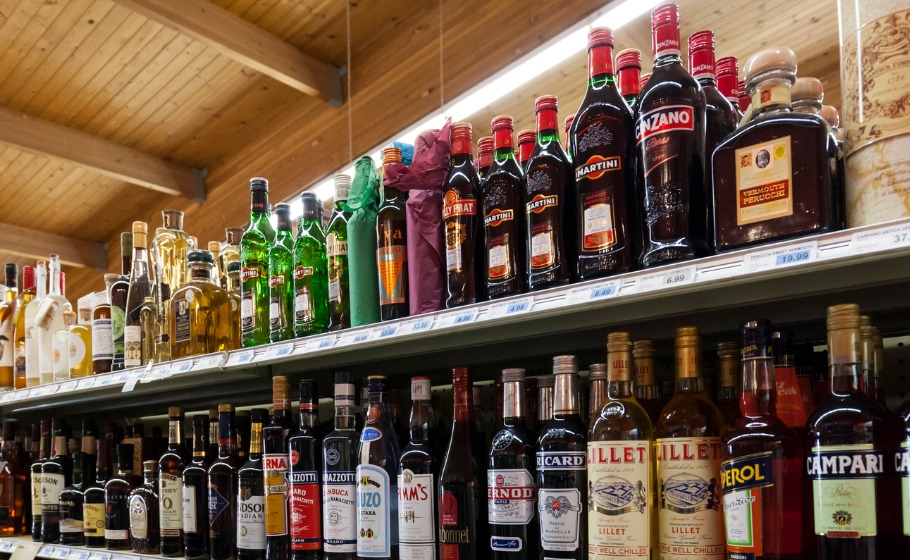
CBI raids Sisodia's house; what's the controversy on Delhi liquor policy?

The CBI on Friday raided the residence of Delhi Deputy Chief Minister Manish Sisodia in connection with alleged corruption in the Delhi government’s now-withdrawn Delhi Excise Policy 2021-22. Sisodia’s residence were among 21 locations being searched across the country, CBI sources said.
“CBI has arrived,” Sisodia confirmed through a tweet, adding “We are honest, building a future for lakhs of children. Unfortunate that in this country, whoever does good work is hassled just like this, that is why our country is still not number-1,” Sisodia tweeted this morning.
Also read: Delhi to revert to old liquor policy; private shops to shut down from August 1
“CBI is welcome. We will give full cooperation. Searches/raids took place earlier too, but nothing was found. Nothing will be found now too,” Kejriwal tweeted, mentioning that the CBI has raided his residence on the day when the picture of the Delhi Model and Manish Sisodia appeared on the front page of America’s biggest newspaper, The New York Times.
The CBI says that the private parties who were awarded licenses included many ineligible vendors who paid bribes to the Delhi government.
Allegations of kickbacks
It all started on July 8, when Delhi chief secretary Naresh Kumar gave a report to Lt Governor V K Saxena, reportedly accusing Sisodia of providing undue benefits to liquor vend licensees in lieu of “kickbacks” and “commissions”, which were allegedly used by the Aam Aadmi Party (AAP) in the recent Punjab Assembly elections.
Following the report, L-G recommended a CBI investigation. He also directed Delhi’s chief secretary to submit a report detailing the “role of officers and civil servants in its illegal formulation, amendments and implementation.”
The CBI investigation trained guns on Sisodia as he was in-charge of the Delhi government’s excise department. On July 30, Sisodia announced that the new liquor policy would be scrapped from August 1, and that only government-owned liquor vendors would be allowed to sell alcohol in the national capital.
While the CBI moved in following the L-G’s recommendation, Delhi Police’s Economic Offences Wing (EOW) had been investigating the Delhi government’s excise department for alleged irregularities in the new liquor policy even before Sisodia’s announcement withdrawing the policy. As of now, both agencies are investigating aspects of the case.
Policy under fire
The Delhi government’s new Delhi Excise Policy 2021-22 had proposed several changes in the existing policy, including home delivery of liquor, the opening of shops till 3 am, and allowing licensees to offer unlimited discounts. These changes were proposed by a group of ministers in the Delhi cabinet on May 2.
Before the policy could be implemented, however, it had to be examined by chief secretary Naresh Kumar, who was appointed in April this year. After going through the proposal, Kumar flagged procedural lapses and irregularities in the new policy. On July 8, he sent a report to Sisodia and asked for a reply. A copy of the report was also sent to Delhi Chief Minister Arvind Kejriwal and L-G Saxena.
The report said that Sisodia allegedly made changes to the excise policy without the approval of the L-G, such as allowing a waiver of Rs 144.36 crore on tendered licence fee on account of the Covid-19 pandemic, according to media reports.
The report also alleged that Sisodia gave undue benefits to liquor licensees by revising the rates of foreign liquor and removing the levy of import pass fee of Rs 50 per case of beer. This, the report said, made foreign liquor and beer cheaper for retail, leading to a loss of revenue for the state exchequer.
The EOW investigation
The EOW issued notice to the assistant commissioner of the Delhi Excise Department, seeking details about the alleged illegal distribution of liquor licences to companies that had violated the terms and conditions of the new excise policy. It also sought documents and details about the new excise policy — the date on which the policy had been formulated, when the tenders for liquor licences were floated, application forms of all successful applicants and other relevant documents that they had submitted. It also asked the excise department for the procedure followed to curb cartelisation of the liquor trade.
What the new Delhi excise policy proposed
Proposed in 2020, the new policy came into effect in November 2021. Delhi was divided into 32 zones with each zone having 27 liquor vends. It also marked the exit of the government from selling liquor. Only private liquor shops were to operate in the city and each municipal ward would have 2-3 vends. The government said that the aim was to end the liquor mafia and black marketing, increase revenue and improve consumer experience, and ensure equitable distribution of liquor vends.
Also read: Delhi LG approves govt’s move to extend excise licences of liquor vends
The rules for licensees were made flexible — allowing them to offer discounts and set their own prices instead of selling on MRP fixed by the government. Following this, discounts were offered by vendors, which attracted crowds. The centre alleged that the Delhi government, by proposing services that include home delivery of liquor, is promoting an “alcohol culture.”
After protests by the opposition, the excise department withdrew the discounts for some time.
After the implementation of the new excise policy 2021-22, the government’s revenue increased by 27 per cent, generating around Rs 8900 crore, according to some media reports.


